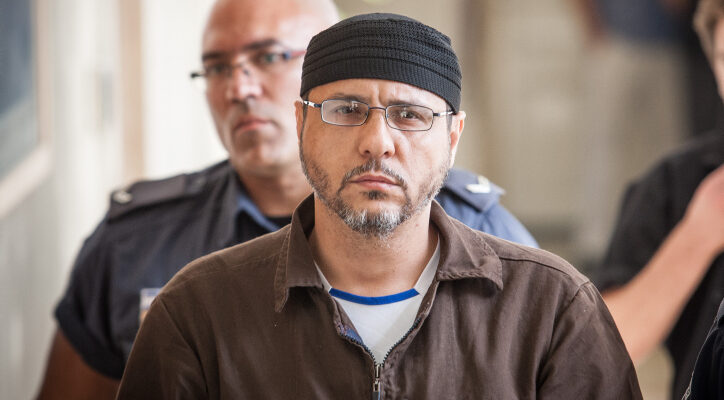A deal which sees terror masterminds released could lead to another October 7th-style terror onslaught, cautions former Shin Bet investigator.
By World Israel News Staff
A former senior official at the Shin Bet urged Israel to exercise caution when releasing Palestinian security prisoners, should a ceasefire and hostage deal come to fruition.
Yossi Amrosi, who served as a high-ranking investigator and is now a member of the Israel Defense And Security Forum, told Radio 103FM on Monday morning that a deal which sees terror masterminds released could lead to another October 7th-style terror onslaught.
“If you release Abdullah Barghouti, who is serving 66 life sentences, you are releasing the next Yahya Sinwar,” Amrosi said.
Barghouti, a member of Hamas’ military wing, helped plan numerous deadly terror attacks during the Second Intifada, in which 66 Israelis were killed and 500 more were wounded.
Hamas demanded the release of Barghouti during the 2011 Gilad Shalit prisoner exchange, but that request was turned down by Israel.
However, Israeli officials did release Yahya Sinwar back to the Strip. Sinwar is now the head of Hamas and is believed to have masterminded the October 7th massacres.
Amrosi poured cold water on reports that Israel is close to reaching a ceasefire and hostage release deal with the terror group.
Referencing reports that Shin Bet head Ronen Bar had recently traveled to Cairo, Amrosi said that the visit only indicated that “there are negotiations.”
Amrosi acknowledged that there are “signs of shared interests between the two sides that might lead to progress on a deal and the return of hostages.”
But, Amrosi cautioned, “we are still not close to signing, and we are far from an agreement.”
Many details still need to be ironed out, including the number of prisoners Hamas is demanding be released, and restrictions on future Israeli military activity inside of the Strip.
A recent poll found that the majority of Israelis are opposed to a deal with Hamas, likely due to fears that releasing terror prisoners could lead to further attacks.




